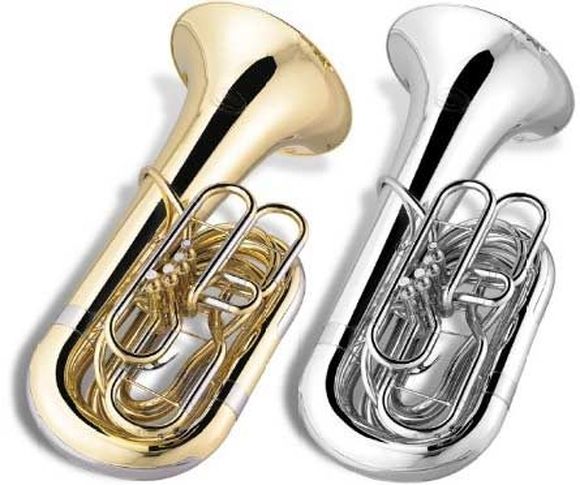6. All that glitters is not gold
In tuba construction, brass (70% copper, 30% zinc) or gold brass (85% copper, 15% zinc) are used. The two metals differ in production, durability and sound. Parts which are especially subject to corrosion, such as the lead pipe or parts of the valve apparatus, are often made completely of nickel silver, an alloy of nickel, copper and zinc.
Production is not our concern here, and durability is subject to contributing factors. The central fact is the greater durability of gold brass, since the increased share of copper makes the material better able to withstand corrosion. This is also the reason why there are some tubas with a brass body and a gold brass lead pipe. The instrument surfaces are sealed with either clear, silver or gold varnish.
The sound most significantly depends on the sound generator, i.e. the musician, and then the mouthpiece. Only then do the size, the construction type, the material and its thickness, and finally the varnish enter into consideration. Since such a wide variety of factors is in play, the ideal sound for you largely depends on your personal taste and the context in which the instrument will be played.



